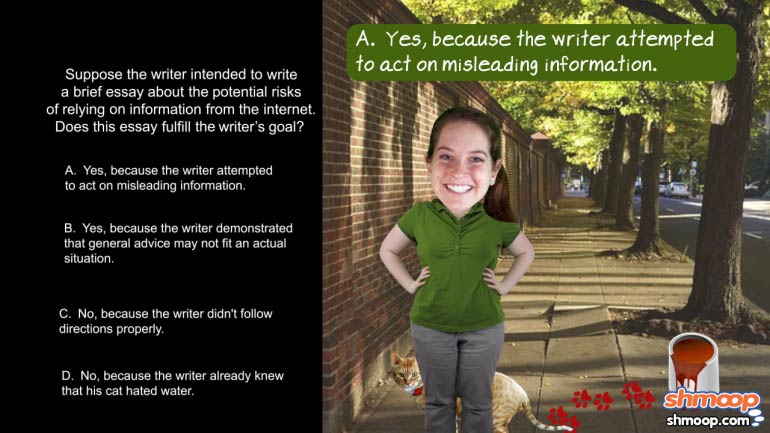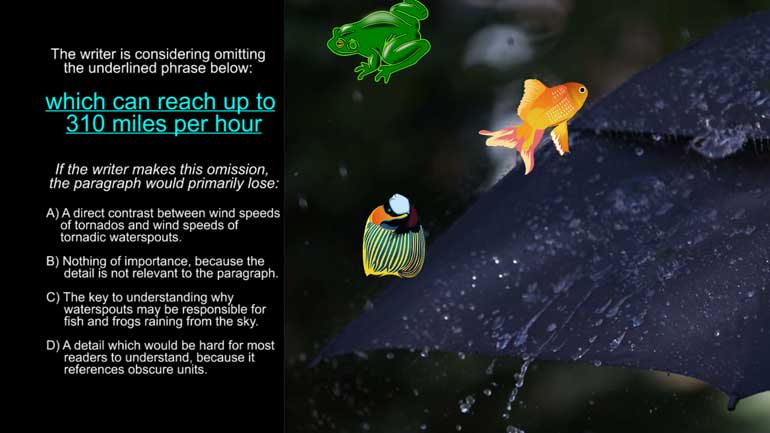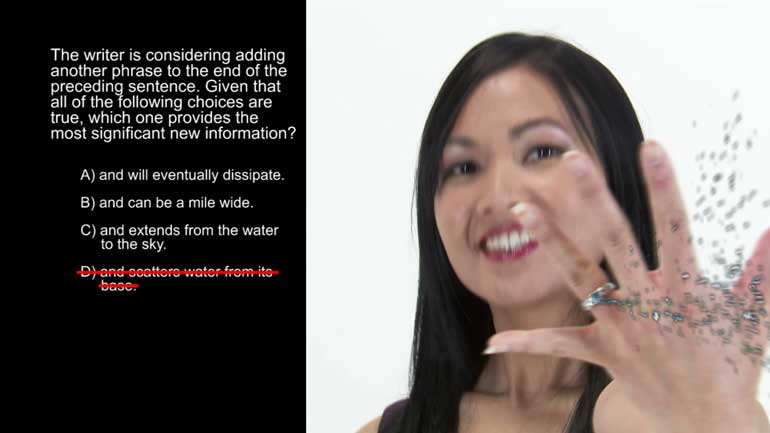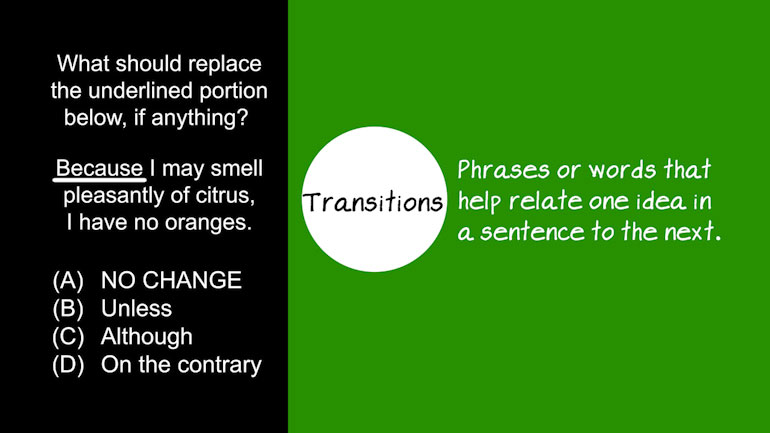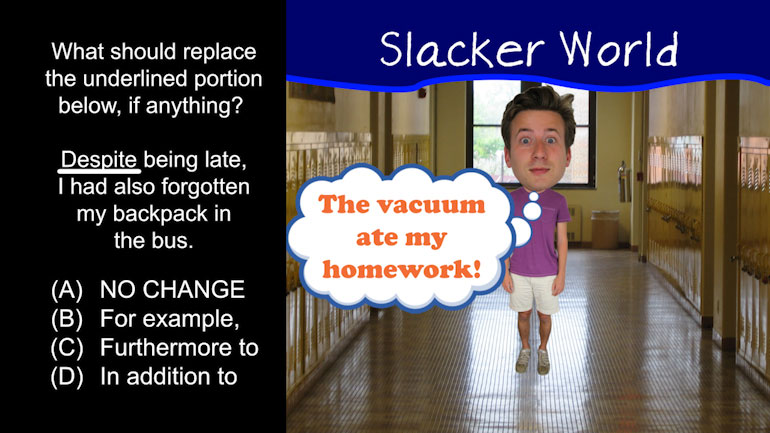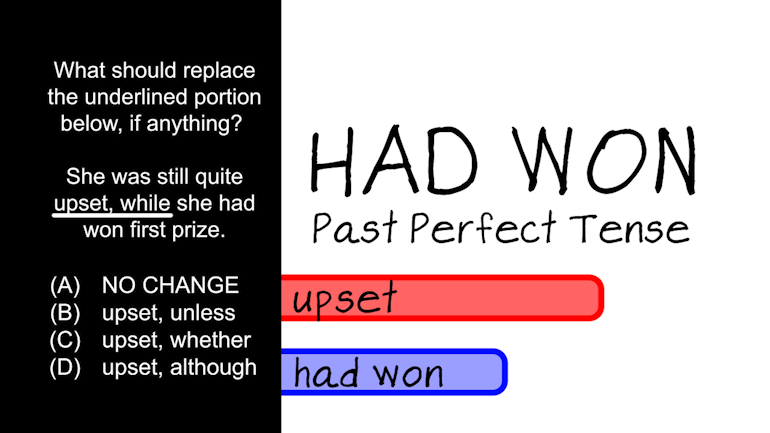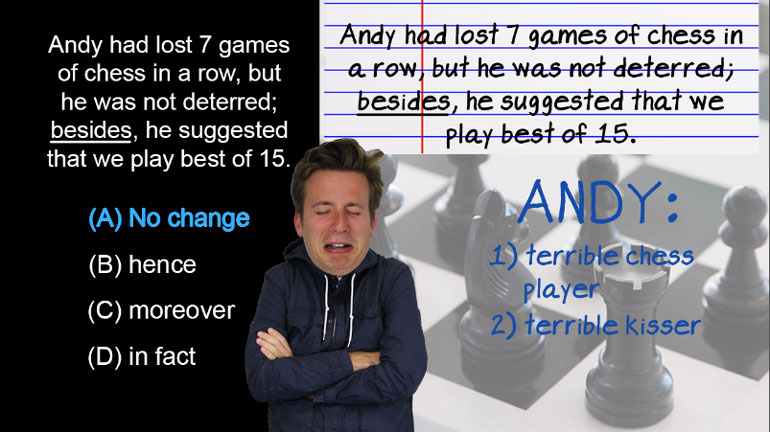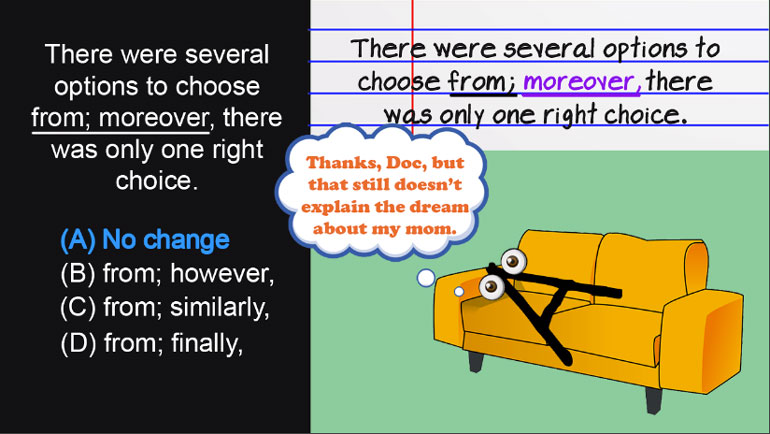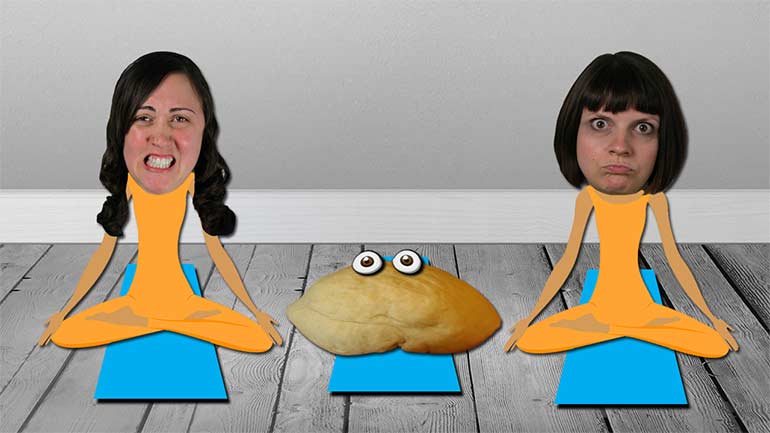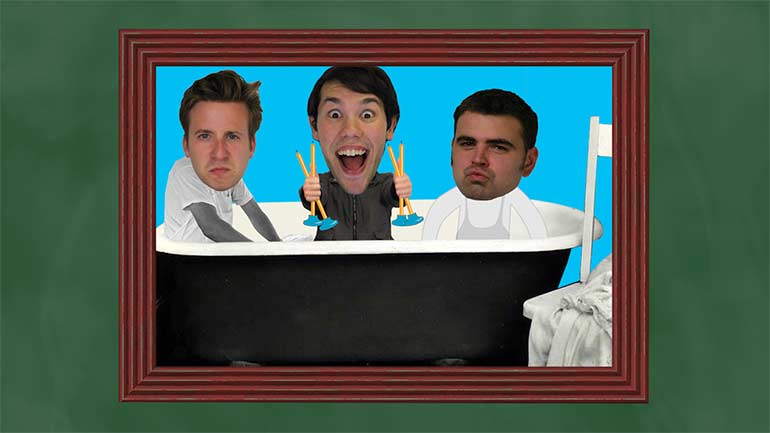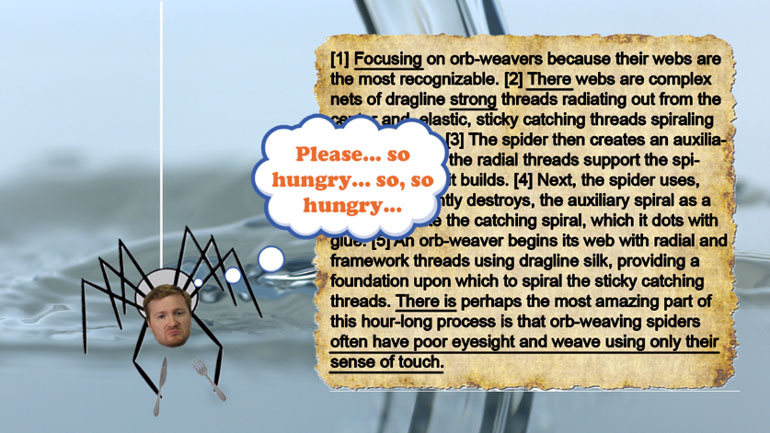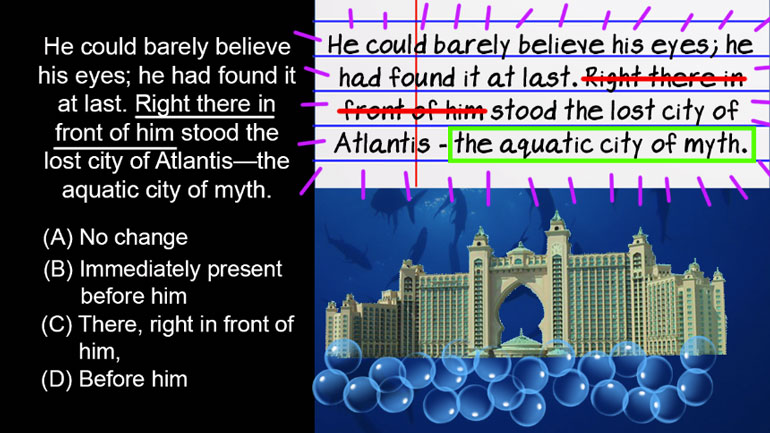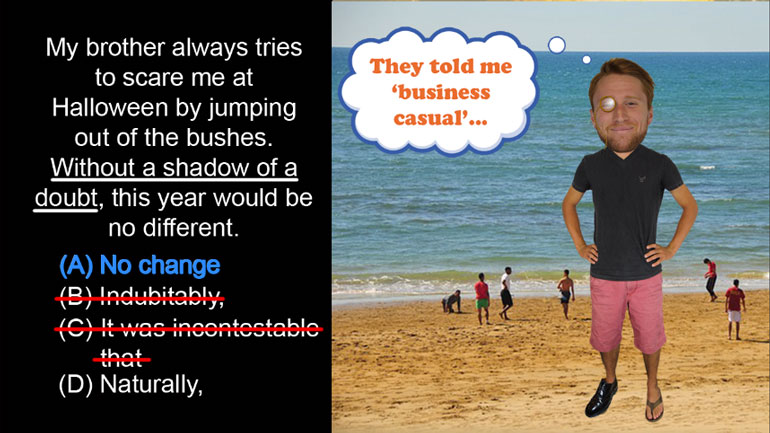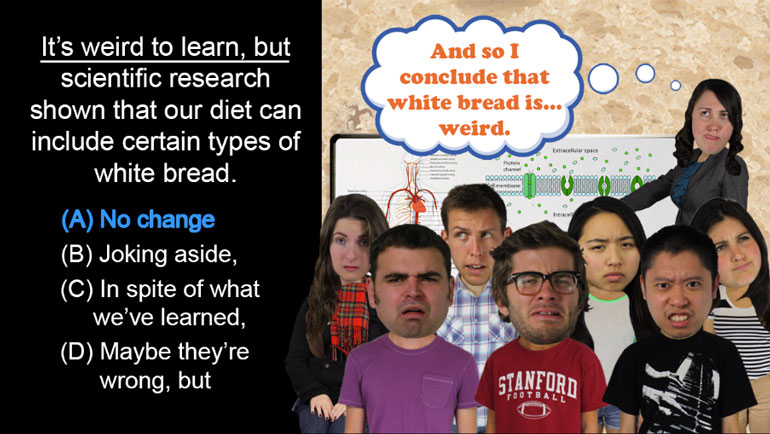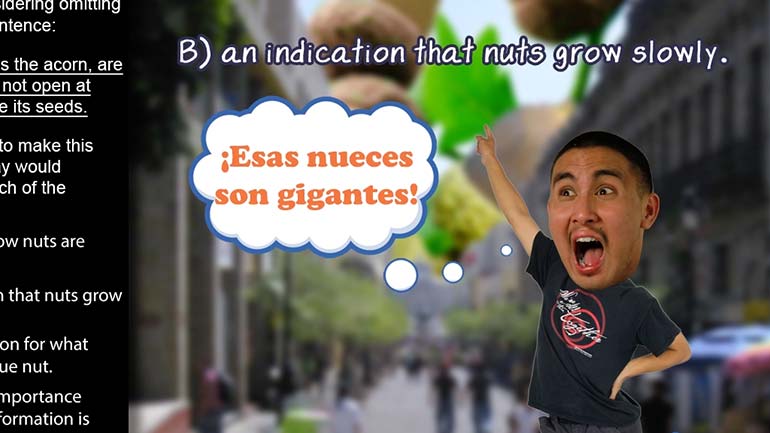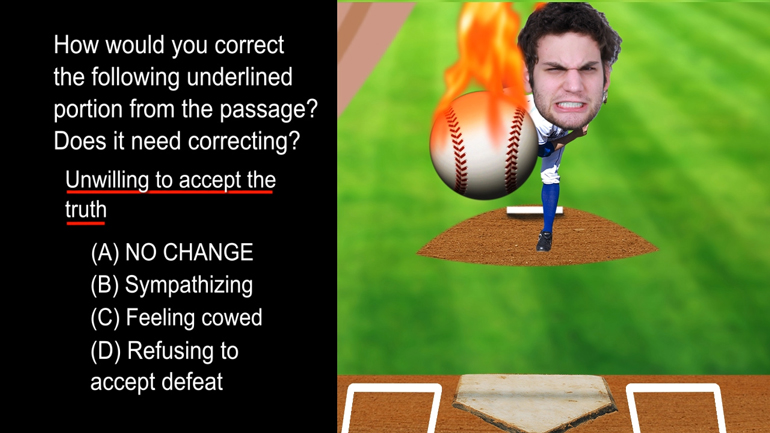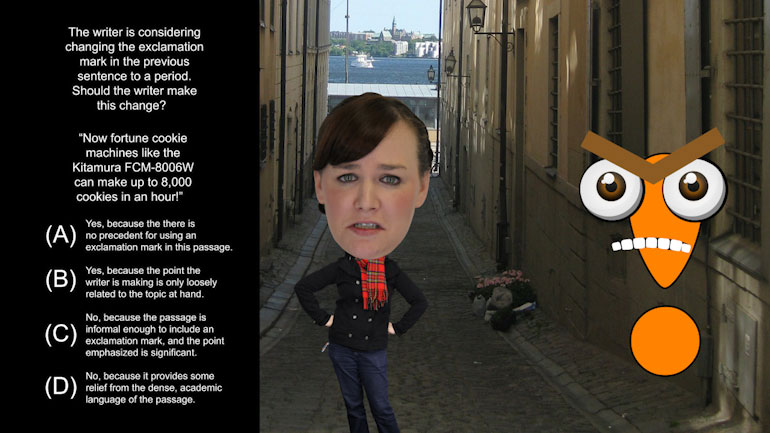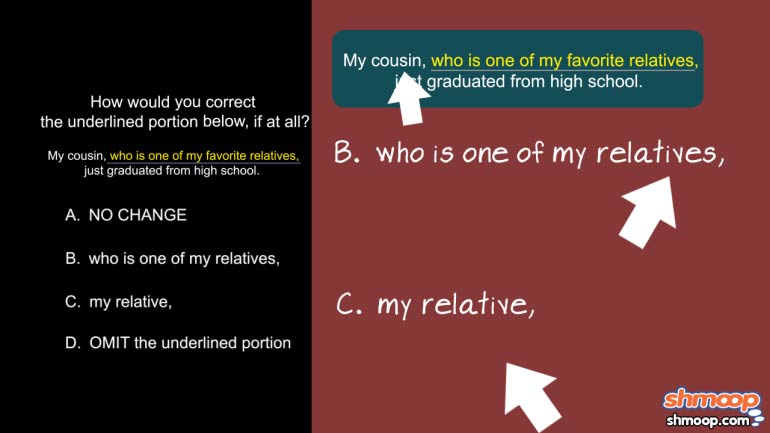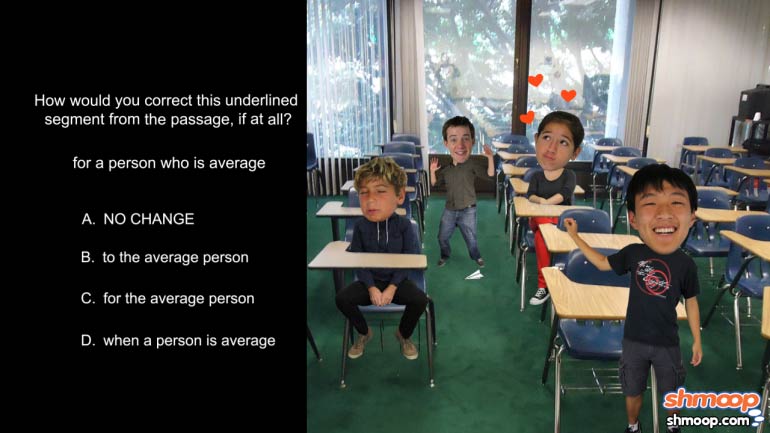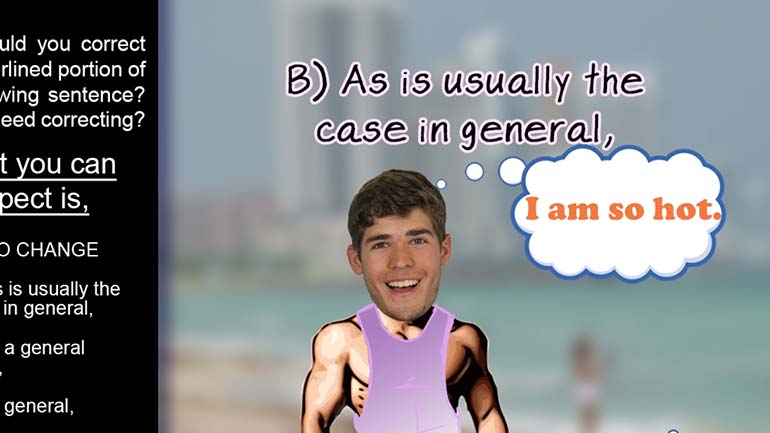ShmoopTube
Where Monty Python meets your 10th grade teacher.
Search Thousands of Shmoop Videos
Rhetorical Skills Videos 50 videos
ACT English: Passage Drill 2, Problem 11. Which of the following sentences would make the most effective transition?
In this ACT English passage drill determine if the writer of the passage may or may not have achieved their proposed goal.
ACT English: Passage Drill Drill 3, Problem 2. What would the paragraph lose if the writer omits the underlined phrase?
Transition Words 298 Views
Share It!
Description:
ACT English: Organization Drill 1, Problem 4. Which is the correct transition word?
- Rhetorical Skills / Organization: Sentences and Paragraphs
- Product Type / ACT English
- English I EOC Assessment / Introductory and Concluding Paragraphs
- English I EOC Assessment / Organization
- Essay Revision / Coherence, Organization, and Word Choice
- Essay Revision / Rhetorical Effectiveness and Use of Organization
- Rhetorical Skills / Organization
Transcript
- 00:03
Here's your Shmoop du jour, brought to you by chess. We actually had a really beautiful
- 00:08
chess set once, but we pawned it.
- 00:12
How would you correct the underlined portion of the following sentence, if at all?
- 00:16
Andy had lost 7 games of chess in a row, but he was not deterred; besides, he suggested
- 00:22
that we play best of 15.
Full Transcript
- 00:31
The semicolon signals two independent clauses, so the transition word in question deals with
- 00:35
the relationship between them.
- 00:37
The first clause introduces Andy's feelings about his extensive losses, while the second
- 00:43
clause clarifies Andy's possibly misplaced optimism with an example.
- 00:51
We can easily nix choice (A) because "besides" is never used to provide an example.
- 00:56
Instead, it's used to add one idea to another. An example might be, "Besides being a terrible
- 01:02
chess player, Andy was also a terrible kisser."
- 01:11
Aside from it being kinda redundant, see how the one idea is layered on top of the other?
- 01:15
Of course, this isn't what the sentence is going for at all; therefore, we can say goodbye
- 01:19
to (A).
- 01:20
Choice (C) makes a similar mistake to (A). Like "besides," "moreover" is a transition
- 01:25
used to add more information.
- 01:27
We could say, "Andy was a terrible chess player; moreover, he was a terrible person who liked
- 01:32
to kick puppies," and it would be correct.
- 01:34
Anyway, (C) doesn't help us set up an example, so we can take it out of consideration.
- 01:40
Choice (B) offers "hence" as the solution, but this doesn't do the job either. "Hence"
- 01:45
is used to show how something is caused by something else.
- 01:49
"Andy had never played chess before; hence, he was terrible at it," would be correct.
- 02:01
But again, this sentence is looking for a transition that sets up an example, and establishing
- 02:05
a cause and effect relationship doesn't help.
- 02:08
We dub choice (D) the right answer for its use of "in fact," which is often used to set
- 02:13
up examples.
- 02:14
Here, it correctly sets up the example of just how determined Andy is to win this next
- 02:19
game of chess, despite the odds.
- 02:21
We love Andy's enthusiasm, but don't share his confidence. Let's hope he's not a betting
- 02:26
man...
Related Videos
ACT English: Punctuation Drill 2, Problem 3. Where does the semicolon fit best?
ACT English: Punctuation Drill 2, Problem 2. Where should the semi-colon be placed?
ACT English: Punctuation Drill 3, Problem 1. How should this sentence be changed so that it is grammatically correct?
ACT English: Punctuation Drill 3, Problem 2. How should we properly hyphenate the words in this sentence?
ACT English: Punctuation Drill 3, Problem 4. Which choice best formats this list of items?

